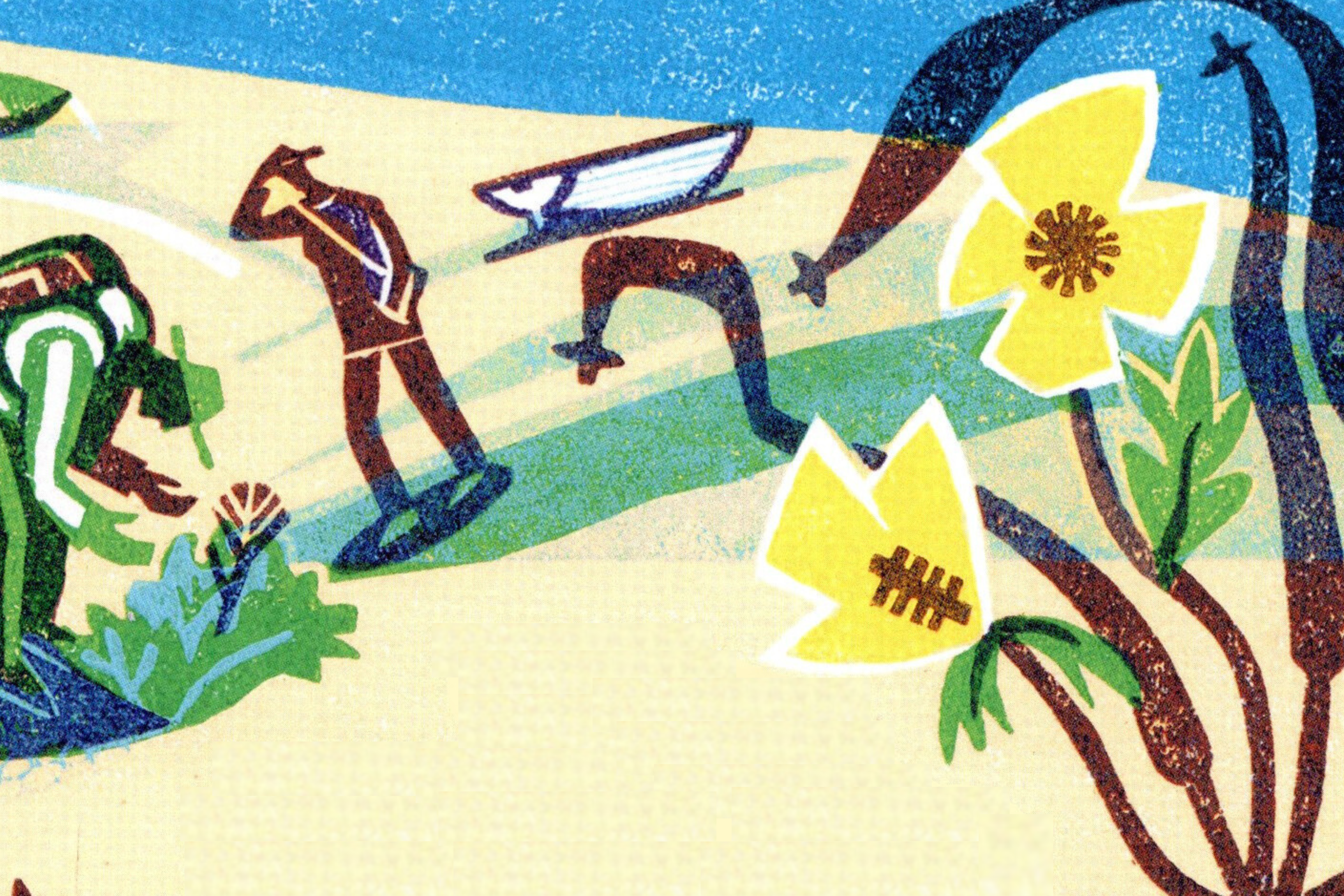Evocative descriptions of landscapes, groundbreaking studies focusing on the remarkable features of an individual species or ecosystem, calls for conservation and a better understanding of the natural world – whether aiming to educate or entertain, the best nature writers convey both depth of knowledge and a compelling enthusiasm for their subject that makes their work accessible even to non-specialists. Here we introduce some of the most renowned authors whose work has raised awareness of ecology and the environment.

Nan Shepherd
While she travelled extensively, Nan Shepherd (1893–1981) lived her whole life on North Deeside and frequented the Cairngorms at all times of day and throughout the seasons. During the earlier part of her teaching career she published three modernist novels and a collection of poetry but it was her descriptive work on the local landscape, The Living Mountain, for which she is now remembered. Written during the last years of the Second World War but not published until 1977, this slim volume is replete with evocative descriptions that reflect the depth of her knowledge but also her acute observation and poetic talent.

David Attenborough
With his childhood interest in the natural world and a scholarship to Clare College, Cambridge to study geology and zoology, the young David Attenborough began his career in publishing before moving into television production. Stepping in as a presenter for Zoo Quest in 1954 when a colleague fell ill set him on the path to fame, although he continued with his work off camera: shaping the BBC’s output; creating the Life series, with each set of documentaries accompanied by a book; and writing numerous other titles that have brought ecological issues to a broad audience and established him as one of the world’s most well-known naturalists.

Oliver Rackham
Originally set to become a physicist, it was an undergraduate module in botany that sent Oliver Rackham on his path towards a career in ecology. After a thesis focusing on plant growth and transpiration he turned to the history and management of woodland and wrote prolifically on the topic, with titles including Trees and Woodland in the British Landscape and History of the British Countryside, before extending his studies to America, Europe and beyond. In addition to his published work he wrote extensively in notebooks – blue books for recording the locations of individual species and red for his personal observations – creating a lifelong archive that captures his interdisciplinary approach.

Richard Mabey
The former Senior Editor at Penguin Books became a writer in the 1970s with his debut, the foraging guide Food for Free, soon followed by The Unofficial Countryside and The Flowering of Britain, both of which became episodes of the television series The World About Us. He has now penned about 30 books, including the award-winning Flora Britannica, as well as articles for the New Statesman and The Times. Acknowledged by the Guardian for his awareness that ‘a strictly scientific description of plants neglects their proper place in our world’ and considered ahead of his time, his work spans topics such as birdsong, the healing power of nature, weeds and the weather with knowledge and enthusiasm.

Derek Gow
After turning his back on sheep farming to manage a wildlife park in Scotland, Derek Gow became passionate about nature. Now in the process of rewilding his 300-acre farm in Devon he also breeds creatures including beavers, water voles and wildcats for reintroduction to habitats across Britain, recording the process in his books Bringing Back the Beaver and Birds, Beasts and Bedlam. While his work has brought criticism from farmers and those concerned about food security, Gow has robustly defended his stance, highlighting both the flaws inherent in the farming system and the need for profound change in our thinking about the countryside. In his latest campaign and 2024 book, Hunt for the Shadow Wolf, he calls for the reintroduction of the predator to Britain, arguing that the creature has been unfairly maligned and has a valuable role in the ecosystem.

John Wright
An expert in foraging and fungi John Wright is perhaps best known for his work with River Cottage and books such as The Forager’s Calendar that encourage readers to search for food in Britain’s natural landscapes. With decades of experience as a naturalist, he has also written in depth about the development of hedges and the need to protect them (A Natural History of the Hedgerow) and curious phenomena such as fairy rings, galls and slime moulds (A Spotter’s Guide to Countryside Mysteries), while his numerous online articles touch on topics such as habitat loss, invasive species and the environmental impact of commercial food production.

Robert Macfarlane
A Professor of Literature and Environmental Studies at Cambridge, Robert Macfarlane is well placed to write about the natural world and his works have received international recognition. His debut book, 2003’s Mountains of the Mind, won the Guardian First Books Award and prompted further work on ‘ideas of landscape, nature, people, place and environment’, including The Old Ways with its exploration of 1,000 miles of ancient tracks and roads, and Landmarks, which considers how our relationship to landscapes and our understanding of them is shaped by the language we have to describe them.

Sally Coulthard
From her Yorkshire smallholding archaeology and anthropology graduate Sally Coulthard documents the daily tasks associated with raising livestock, growing crops and living as self-sufficiently as possible for her Country Living column ‘A New Good Life’. Alongside this she has written 25 books, from practical guides on renovation and crafting to informative studies that focus on particular species of animal including bees, earthworms, hedgehogs and barn owls.



